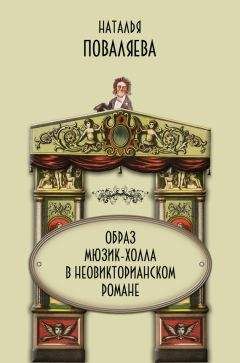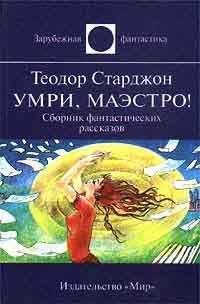25
«But what a picture I made in the mirror – I had become a man, from tip to toe, and there might have been a slangster comedian standing there; it was a perfect piece of business» [13, c. 150].
«I could be girl and boy, man and woman, without any shame. I felt somehow that I was above them all, and could change myself at will» [13, c. 153].
«I was still in my own particular private theater, this garish spot beneath the gas lamps, and here I must perform. But, at first, let it be behind the curtain…» [13, c. 27].
«“Большие надежды” впечатляют меня все больше и больше с каждым новым прочтением; в романе есть такие моменты, от которых просто невозможно устать»
«…a slender, white-faced, unremarkable-looking girl, with the sleeves of her dress rolled up to her elbows, and a lock of lank and colourless hair forever falling into her eye, and her lips continually moving to the words of some street-singer" s or music-hall song» [61, c. 4].
«Whitstable was all the world to me, Astley" s Parlour my own particular country, oyster– juice my medium» [61, c. 4].
«…for eighteen years I never doubted my own oyster-ish sympathies, never looked far beyond my father "s kitchen for occupation, or for love» [61, c. 4].
«The Palace was a small and, I suspect, a rather shabby theatre; but when I see it in my memories I see it still with my oyster-girl" s eyes – I see the mirror-glass which lined the walls, the crimson plush upon the seats, the plaster cupids, painted gold, which swooped above the curtain. Like our oyster-house, it had its own particular scent – the scent, I know now, of music halls everywhere – the scent of wood and grease-paint and spilling beer, of gas and of tobacco and of hair-oil, all combined. It was a scent which as a girl I loved uncritically; later I heard it described, by theatre managers and artistes, as the smell of laughter, the very odour of applause» [61, c. 6].
«The Palace was an old-fashioned music hall and, like many such places in the 1880s, still employed a chairman. This, of course, was Tricky himself: he sat at a table between the stalls and the orchestra and introduced the acts, and called for order if the crowd became too rowdy, and led us in toasts to the Queen. He had a top-hat and a gavel – I have never seen a chairman without a gavel – and a mug of porter. On his table stood a candle: this was kept lit for as long as there were artistes upon the stage, but it was extinguished for the interval, and at the show's close» [61, c. 12].
«All unwillingly I opened my eyes – then I opened them wider, and lifted my head. The heat, my weariness, were quite forgotten. Piercing the shadows of the naked stage was a single shaft of rosy limelight, and in the centre of this there was a girl: the most marvellous girl – I knew it at once! – that I had ever seen. <…> She wore a suit – a handsome gentleman" s suit, cut to her size, and lined at the cuffs and the flaps with flashing silk. There was a rose in her lapel, and lavender gloves at her pocket. From beneath her waistcoat shone a stiff-fronted shirt of snowy white, with a stand-up collar two inches high. Around the collar was a white bow-tie; and on her head there was a topper. When she took the topper off – as she did now to salute the audience with a gay „Hallo!" – one saw that her hair was perfectly cropped» [61, c. 17].
«At first she answered as I thought an actress should – comfortably, rather teasingly, laughing when I blushed or said a foolish thing. Gradually, however – as if she was stripping the paint from her voice, as well as from her face – her tone grew milder, less pert and pressing. At last – she gave a yawn, and rubbed her knuckles in her eyes – at last her voice was just a girl's: melodious and strong and clear, but just a Kentish girl's voice, like my own» [61, c. 32].
«„We are at the heart of London," said Mr Bliss as she did so, „the very heart of it. Over there" – he nodded to the Alhambra – „and all around us" – and here he swept his hand across the square itself – „you see what makes that great heart beat: Variety! Variety, Miss Astley, which age cannot wither, nor custom stale." Now he turned to Kitty. „We stand," he said, „before the greatest Temple of Variety in all the land"» [61, c. 66].
«I had passed perhaps seven minutes before that gay and shouting crowd; but in those few, swift minutes I had glimpsed a truth about myself, and it had left me awed and quite transformed. The truth was this: that whatever successes I might achieve as a girl, they would be nothing compared to the triumphs I should enjoy clad, however girlishly, as a boy. I had, in short, found my vocation» [61, c. 121].
«Every name seemed to offer me some new and marvellous version of myself; it was like standing at the costumier" s rail and shrugging on the jackets» [61, c. 123].
«…it was my new capacity for pleasure – for pleasure in performance, display and disguise, in the wearing of handsome suits, the singing of ribald songs – that shocked and thrilled me most» [61, c. 125].
«In fact, the world of actors and artistes, and the gay world in which I now found myself working, are not so very different. Both have London as their proper country, the West End as their capital. Both are a curious mix of magic and necessity, glamour and sweat. Both have their types – their ingenues and grandes dames, their rising stars, their falling stars, their bill-toppers, their hacks…» [61, c. 203].
«My one regret was that, though I was daily giving such marvellous performances, they had no audience. I would gaze about me at the dim and dreary place in which my gentleman and I leaned panting, and wish the cobbles were a stage, the bricks a curtain, the scuttling rats a set of blazing footlights. I would long for just one eye – just one! – to be fixed upon our couplings: a bold and knowing eye that saw how well I played my part, how gulled and humbled was my foolish, trustful partner» [61, c. 206].
«I felt for a second – what I had not felt, it seemed, for a hundred years – the thrill of performing with a partner at my side, someone who knew the songs, the steps, the patter, the pose. . The memory brought with it an old, dull ache of grief; but it was overlaid, in this new setting, with a keen, expectant pleasure. Here we were, this strange lady and I, on our way to I knew not what, playing whore and trick so well we might have been reciting a dialogue from some handbook of tartery! It made me giddy» [61, c. 236].
«The room last night had been as unreal as a stage-set: a place of lamplight and shadows, and colours and scents of impossible brilliance, in which we had been given a licence to be not ourselves, or more than ourselves, as actors are» [61, c. 347].
«Her marriage had been, I think, a loveless one, for she wore neither wedding-ring nor mourning-ring, nor was there any picture of Mr Lethaby in any room in that large, handsome house» [61, c. 252].
«…it was as if she was handing me the play text, for me to read it back to her» [61, c. 356].
Работа над романом велась на протяжении 1980-х, а потом рукопись пролежала «в столе» вплоть до начала 2000-х.
Сюжет, интрига, фабула.
«It had begun to rain and the cobblestones were shiny and slippery. The old stage door was at the very end. Robert reached for the keys in his jacket pocket, then paused to read the inscription carved into the stone lintel over the door. It was worn, but still legible: „Please one and please all, be they great, be they small". He did not recognize the quote, but it was so completely appropriate for a theatre that he smiled and stopped minding about the complexity of the work ahead of him. Unlocking the stage door, he stepped inside, and the scents of dust, old timber and sheer age closed about him».
«Hilary thought about the Tarleton on the way home that evening. It was a place that got under your skin if you wondered about it for too long, it made you want to find out what had plunged it into its long twilight. A violent death? A plot to overthrow the government? Somebody with a sleeping beauty fixation?»
Адрес блога: www.virtualvictorian.blogspot.com.
«I would have been seven or eight at the time, and somehow Aunt Cissy persuaded Mama to allow me a trip to the pantomime. Ali Baba and the Forty Thieves it was, and as we rushed off to climb in a cab, Mama called after us down the front steps, „You watch that child. . there" ll be forty thieves in the audience!" I heard Cissy" s sudden intake of breath as she paused to look back from the pavement edge, „Oh, Maud. . you know we" ll be perfectly safe. I promise to bring Phoebe home by ten." And we were quite safe, and home by ten, though perhaps Mama" s fears had been justified because something was stolen – and that was my heart; coming home in a giddy excitement, unable to eat or sleep that night for thinking of all the sights and sounds, the thick smells of greasepaint, tobacco and sweat. That show had been mayhem, like nothing I" d ever seen before, with Alf Merchant" s „astonishing, leaping, juggling" dogs, and the high-stepping dancers, and the swaggering swell who got the whole crowd singing along with „Burlington Bertie from Bow"»
Эти женщины держали так называемую «детскую ферму» (baby farm) – распространенный в викторианскую эпоху тип частного приюта, куда за определенную плату принимали младенцев (в основном, незаконнорожденных) на содержание. Считалось, что детей готовят к определению в хорошие семьи на воспитание, но на деле зачастую владельцы «детских ферм» присваивали деньги, уплаченные родителями или опекунами, морили детей голодом, не осуществляли за ними должного присмотра, в результате чего большинство воспитанников «детских ферм» умирали в течение нескольких недель или месяцев после определения в подобные заведения. Нередки были случаи, когда детей намеренно умерщвляли, чтобы не тратить средства на их содержание. Именно в этом были обвинены Амелия Саш и Энни Уолтерс в 1901 году. Суд признал их вину, и они стали первыми женщинами, казненными через повешение в тюрьме Холлоуэй.
Моя жизнь сродни мюзик-холлу,
Где, в бессильной злобе
Прикованный заклятьем к своему креслу,
Я вижу себя на сцене
Танцующим на потеху публики.




